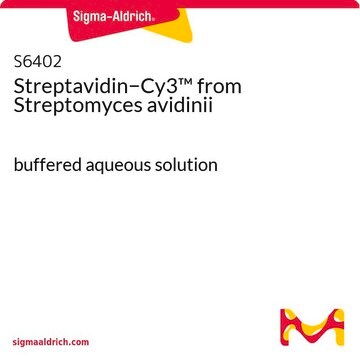AB5022
Anti-Taurine (No Gluteraldehyde) Antibody
diluted serum, Chemicon®
Sign Into View Organizational & Contract Pricing
All Photos(1)
About This Item
UNSPSC Code:
12352203
eCl@ss:
32160702
NACRES:
NA.41
Recommended Products
biological source
rabbit
Quality Level
antibody form
diluted serum
antibody product type
primary antibodies
clone
polyclonal
species reactivity
vertebrates
manufacturer/tradename
Chemicon®
technique(s)
immunohistochemistry: suitable
shipped in
wet ice
target post-translational modification
unmodified
Specificity
Taurine. The antibody has been calibrated against a spectrum of antigens to assure hapten selectivity and proper affinity. No measurable glutaraldehyde-fixed tissue cross-reactivity (<1:1000) against L-alanine, gamma-aminobutyrate, 1-amino-4-guanidobutane (AGB), D/L-arganine, D/L-aspartate, L-citrulline, L-cysteine, D/L-glutamate, D/L-glutamine, glutathione, glycine, L-lysine, L-ornithine, L-serine, L-threonine, L-tryptophan, L-tyrosine.
Immunogen
Taurine-glutaraldehyde
Application
Immunohistochemistry using silver-intensified immunogold or fluorescence (see recommended protocol). Samples should be fixed with 0.05% - 0.25% glutaraldehyde for optimum detection.
*This antibody has also been used and found to work with a zero-low glutaraldehyde / high paraformaldehyde fixation (4% paraformaldehyde in 0.1M phosphate buffer / 3% sucrose fixative ). The minimum glutaraldehyde concentration for AB5022 is 0.00%. See protocol that follows. Performance is good with frozen sections, Vibratome sections and tissue culture formats, when penetrating reagents such as 0.3% Triton X-100 are used.
Optimal working dilutions must be determined by the end user.
DILUTION: Prepare enough of the AB5022 for your days use by diluting 100X with 1% GSPBT.
*This antibody has also been used and found to work with a zero-low glutaraldehyde / high paraformaldehyde fixation (4% paraformaldehyde in 0.1M phosphate buffer / 3% sucrose fixative ). The minimum glutaraldehyde concentration for AB5022 is 0.00%. See protocol that follows. Performance is good with frozen sections, Vibratome sections and tissue culture formats, when penetrating reagents such as 0.3% Triton X-100 are used.
Optimal working dilutions must be determined by the end user.
DILUTION: Prepare enough of the AB5022 for your days use by diluting 100X with 1% GSPBT.
This Anti-Taurine (No Gluteraldehyde) Antibody is validated for use in IH for the detection of Taurine (No Gluteraldehyde).
Physical form
IgG fraction in sterile 0.1M phosphate buffer. No preservative
Legal Information
CHEMICON is a registered trademark of Merck KGaA, Darmstadt, Germany
Not finding the right product?
Try our Product Selector Tool.
Hazard Statements
Precautionary Statements
Hazard Classifications
Aquatic Chronic 3
Storage Class Code
12 - Non Combustible Liquids
WGK
WGK 2
Flash Point(C)
Not applicable
Certificates of Analysis (COA)
Search for Certificates of Analysis (COA) by entering the products Lot/Batch Number. Lot and Batch Numbers can be found on a product’s label following the words ‘Lot’ or ‘Batch’.
Already Own This Product?
Find documentation for the products that you have recently purchased in the Document Library.
Stefan Wernitznig et al.
The Journal of comparative neurology, 523(2), 298-312 (2014-09-27)
The small size of some insects, and the crystalline regularity of their eyes, have made them ideal for large-scale reconstructions of visual circuits. In phylogenetically recent muscomorph flies, like Drosophila, precisely coordinated output to different motion-processing pathways is delivered by
Yuanyuan Zhu et al.
Cellular and molecular neurobiology (2022-04-19)
Abnormal amino acid metabolism in neural cells is involved in the occurrence and development of major depressive disorder. Taurine is an important amino acid required for brain development. Here, microdialysis combined with metabonomic analysis revealed that the level of taurine
Lisa Nivison-Smith et al.
PloS one, 8(3), e58406-e58406 (2013-03-22)
Lampreys are one of the two surviving groups of the agnathan (jawless) stages in vertebrate evolution and are thus ideal candidates for elucidating the evolution of visual systems. This study investigated the retinal amino acid neurochemistry of the southern hemisphere
Our team of scientists has experience in all areas of research including Life Science, Material Science, Chemical Synthesis, Chromatography, Analytical and many others.
Contact Technical Service







